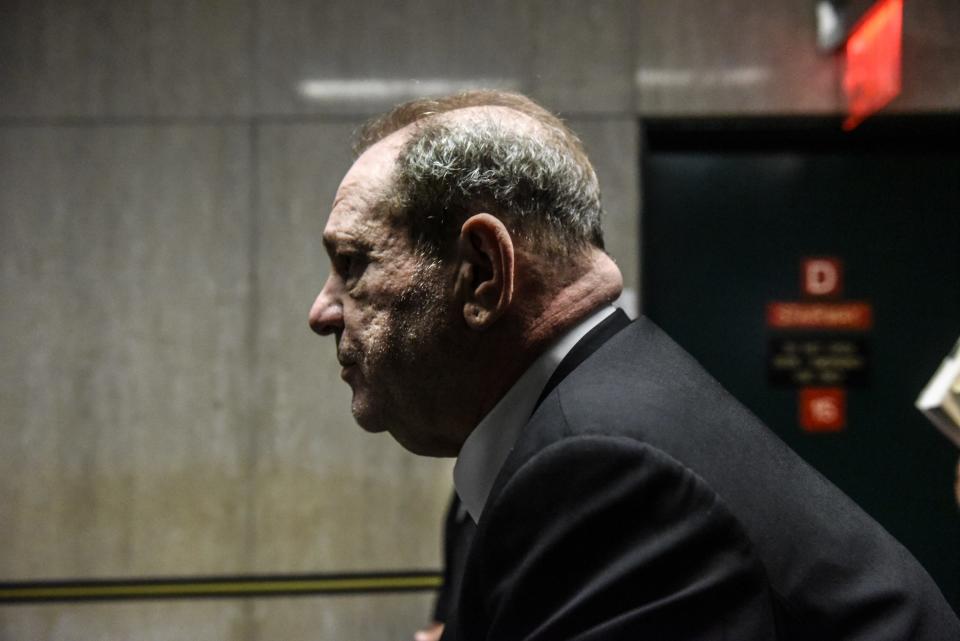Harvey Weinstein's overturned conviction shows how short-lived #MeToo victories can be
On Thursday, a New York appeals court reversed Harvey Weinstein’s 2020 rape conviction. It’s a decision that will affect his survivors more than Weinstein himself.
In a 4-3 ruling, the concurring judges declared that the trial court erred when the judge allowed women who weren’t part of the case to testify about other acts of sexual assault blamed on Weinstein. These witnesses were called in to establish a pattern of bad behavior, but the appellate court judge authoring the new decision says it cast the disgraced movie mogul in a “highly prejudicial light.”
It isn’t necessarily surprising that Weinstein has spent the past few years attempting to get this decision overturned. It’s exemplary of why so many sexual assault survivors avoid coming forward.

Sexual assault is common, despite going mostly unpunished
The reality is that the majority of sexual assaults aren’t even reported to police, and even fewer of these assaults result in legal action.
According to the Rape, Abuse and Incest National Network (RAINN), fewer than 3% of sexual assault perpetrators actually serve jail time.
False rape reports are uncommon: Trevor Bauer accuser may have been a fraud. But most reports of sexual violence are real.
Despite the lack of legal actions, sexual violence is incredibly common.
The Centers for Disease Control and Prevention reports that more than half of women experience physical sexual violence in their lifetimes, and 1 in 4 will experience a rape or attempted rape. It isn't just women – about 1 in 3 men also experience physical sexual violence.
Because sexual violence is so prevalent, everyone knows someone who has experienced sexual assault. That is the reality that the Weinstein allegations brought to light when they sparked the #MeToo movement.
Retrying the Weinstein case requires survivors to relive trauma
For survivors, the reversal of this decision feels like a step backward. Ashley Judd, one of Weinstein's accusers, called the decision "an act of institutional betrayal."
For the case to be retried, the women who survived Weinstein’s abuse would once again have to lay out their trauma for a judge. They would have to submit to invasive questioning and rehash the worst moments of their lives in the hopes of getting the same justice they had already been told was theirs to receive. It’s something that the dissenting judges touched on in their Thursday statement.
“Forgotten are the women who bear the psychological trauma of sexual violence and the scars of testifying again, and again,” Judge Madeline Singas wrote.
Harvey Weinstein conviction thrown out. It was the right call.
Weinstein is still a convicted rapist and is still serving a 16-year sentence in California. He is still someone who used a position of power to coerce women into sex acts.
These facts do not change with the overturning of his conviction in New York.
Opinion alerts: Get columns from your favorite columnists + expert analysis on top issues, delivered straight to your device through the USA TODAY app. Don't have the app? Download it for free from your app store.
As someone who was in college during the height of the #MeToo movement, it's frustrating that we've only come so far in defending survivors of sexual assault. For a moment, it seemed like there was a possibility for real change – that survivors were going to be listened to, whether in the courtroom or in our daily lives. Instead, our reality is that these wins will be short-lived.
RAINN found that of survivors who chose not to report their stories, 13% felt that the police would not do anything to help. This overturned conviction is exactly why so many people never come forward.
All that this proves is that with enough money and the drive to keep going, justice will bend in your favor.
Follow USA TODAY elections columnist Sara Pequeño on X, formerly Twitter, @sara__pequeno and Facebook facebook.com/PequenoWrites.
You can read diverse opinions from our Board of Contributors and other writers on the Opinion front page, on Twitter @usatodayopinion and in our daily Opinion newsletter.
This article originally appeared on USA TODAY: Weinstein's overturned conviction shows limitations of #MeToo movement

